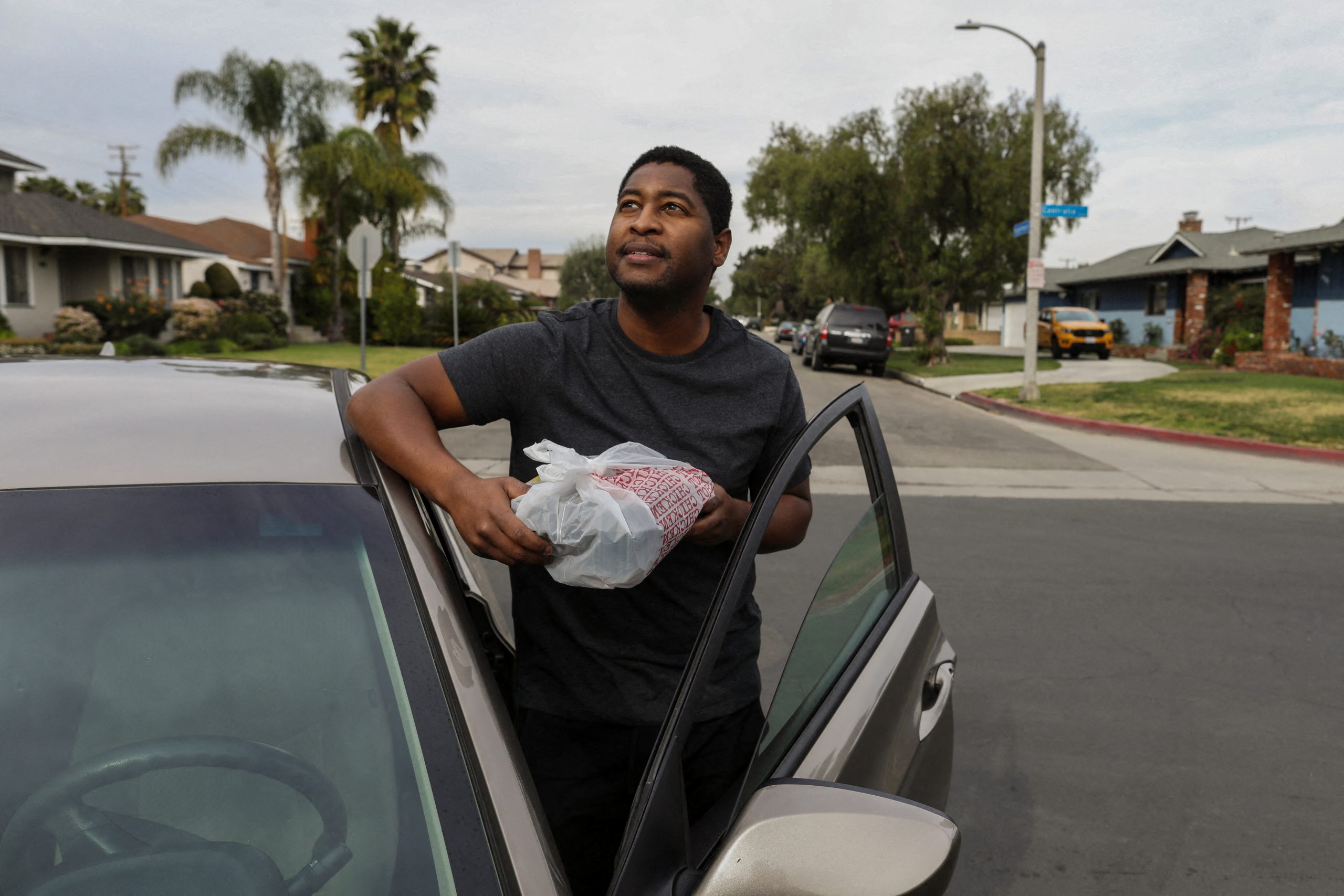A COVID-assistance policy at DoorDash Inc is frustrating some couriers who told Reuters the food-delivery company sidelined them for as long as a month while infections caused by the Omicron variant of the coronavirus flared, costing them much needed income.
DoorDash rolled out its COVID-19 Financial Assistance Program in March 2020, offering a driver who tests positive for COVID, or whose housemate tests positive, a one-time payment equal to their average earnings over the previous two weeks.
“Upon submitting a claim for health-related COVID-19 financial assistance, your Dasher account will be suspended to protect the DoorDash community,” DoorDash said in a March 12, 2020 email to its drivers announcing the program.
But six DoorDash couriers told Reuters that during the recent Omicron surge, DoorDash delayed making the assistance payments and suspended drivers’ DoorDash accounts for prolonged periods, exacerbating the financial strain on gig workers who deliver food for a living.
When Cincinnati-based Doordash driver Josh Murphy notified the company about his roommate’s positive COVID-19 test result on Dec. 21, DoorDash immediately deactivated Murphy’s account for over three weeks – well beyond his 10-day quarantine period.
Murphy said he missed work for 17 days that he would normally be out delivering. He did eventually receive a check for $622 – but he estimates the prolonged account deactivation amounted to a $1,000 net loss, even after the payment.
“I regret asking for the assistance, even though I needed it to pay rent,” Murphy said.
A spokesperson for San Francisco-based DoorDash said in most cases medically-cleared drivers, known as Dashers, are able to get back online within 24 hours.
“When a Dasher submits a qualifying claim, our team works quickly to process their two weeks’ of earning replacement and suspend their Dasher account to protect the DoorDash community,” she said.
DoorDash has dedicated specific team members to process requests for financial assistance and reactivations after Dashers are medically cleared. The company has added additional team members to that group since the start of the pandemic, she noted, adding that significant delays are not widespread.
DoorDash declined to specify the number of couriers who have requested financial assistance since the start of the pandemic. DoorDash counted nearly 3 million people who provided services, or “Dashed,” during the third quarter, earning over $2.8 billion for drivers. The company reports fourth-quarter results on Feb. 16.
‘MY ONLY SOURCE OF INCOME’
Getting financial assistance or paid sick leave for a COVID-related absence is especially hard for gig workers who lack employee benefits.
Uber Technologies discontinued its COVID financial assistance policy for drivers in August of 2021. Lyft, Grubhub, and Instacart still provide COVID sick pay and, like DoorDash, temporarily suspend workers’ accounts after they request financial assistance, according to company spokespeople.
“Nobody forces (gig economy companies) to support the workers, because we’re not employees,” said Gustavo Ajche, a DoorDash courier in New York City and member of labor organization Los Deliveristas Unidos.
App-based delivery companies treat couriers as independent contractors. DoorDash agreed in November to pay more than $5 million to settle an investigation by San Francisco into alleged labor law violations. The city alleged DoorDash was violating its healthcare benefit and paid sick leave laws by misclassifying workers as independent contractors, rather than employees.
Complaints among DoorDash couriers about account suspensions and delays increased in late 2021 with the rise of Omicron, according to social media posts.
Chris Lewis, of Long Beach, California, requested COVID financial assistance on Jan. 4. Emails seen by Reuters show he did not receive a response from the company asking him to verify his positive COVID test until Jan 18.
Lewis, who has already recovered from COVID, finally found out he is eligible for financial assistance on Jan. 28.
Allie, a DoorDash driver in the Minneapolis suburbs, submitted a request to the company for COVID financial assistance when she tested positive just before Christmas. Her DoorDash account has been suspended for over four weeks, and she has yet to receive any sick pay, which she estimates amounts to $2,000 in lost income.
“I do not wish to proceed with the financial assistance,” she wrote in an email to DoorDash’s support team on Jan. 14, “as I am losing more money by not dashing and this is my only source of income.”
(Reporting by Danielle Kaye; Editing by Vanessa O’Connell and Bill Berkrot)
Related


































